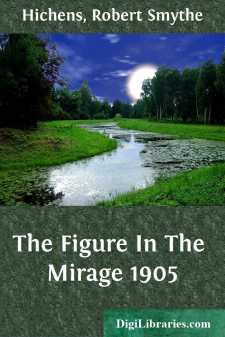Categories
- Antiques & Collectibles 13
- Architecture 36
- Art 48
- Bibles 22
- Biography & Autobiography 816
- Body, Mind & Spirit 145
- Business & Economics 28
- Children's Books 17
- Children's Fiction 14
- Computers 4
- Cooking 94
- Crafts & Hobbies 4
- Drama 346
- Education 58
- Family & Relationships 59
- Fiction 11834
- Foreign Language Study 3
- Games 19
- Gardening 17
- Health & Fitness 34
- History 1378
- House & Home 1
- Humor 147
- Juvenile Fiction 1873
- Juvenile Nonfiction 202
- Language Arts & Disciplines 89
- Law 16
- Literary Collections 686
- Literary Criticism 179
- Mathematics 13
- Medical 41
- Music 40
- Nature 179
- Non-Classifiable 1768
- Performing Arts 7
- Periodicals 1453
- Philosophy 66
- Photography 2
- Poetry 897
- Political Science 203
- Psychology 45
- Reference 154
- Religion 516
- Science 126
- Self-Help 85
- Social Science 82
- Sports & Recreation 34
- Study Aids 3
- Technology & Engineering 59
- Transportation 23
- Travel 463
- True Crime 29
Robert Smythe Hichens
Robert Smythe Hichens (1864-1950) was an English novelist, journalist, and music critic, best known for his satirical and supernatural fiction. His novel "The Green Carnation" (1894) gained notoriety for its thinly veiled depiction of the relationship between Oscar Wilde and Lord Alfred Douglas. Hichens' works often explore themes of decadence and the occult, with "The Garden of Allah" (1904) being one of his most successful novels, adapted into several films.
Author's Books:
Sort by:
In St. Petersburg society there may be met at the present time a certain Russian Princess, who is noted for her beauty, for an ugly defect—she has lost the forefinger of her left hand—and for her extraordinary attachment to the city of Tunis, where she has spent at least three months of each year since 1890—the year in which she suffered the accident that deprived her of a finger. What that...
more...
I had arrived at Inley Abbey that afternoon, and was sitting at dinner with Inley and his pretty wife, whom I had not seen for five years, since the day I was his best man, when we all heard faintly the tolling of a church bell. Lady Inley shook her shoulders in a rather exaggerated shudder. "Someone dead!" said her husband. "It's a mistake to build a church in the grounds of a...
more...
SMAÏN "When the African is in love he plays upon the pipe." Sahara Saying. Far away in the desert I heard the sound of a flute, pure sound in the pure air, delicate, sometimes almost comic with the comicality of a child who bends women to kisses and to nonsense-words. We had passed through the sandstorm, Safti and I, over the wastes of saltpetre, and come into a land of palm gardens where...
more...
In travelling about the world one collects a number of those trifles of all sorts, usually named "curiosities," many of them worthless if it were not for the memories they recall. The other day I was clearing out a bureau before going abroad, and in one of the drawers I came across a hedgehog's foot, set in silver, and hung upon a tarnished silver chain. I picked it up in the Sahara, and...
more...
On a windy night of Spring I sat by a great fire that had been built by Moors on a plain of Morocco under the shadow of a white city, and talked with a fellow-countryman, stranger to me till that day. We had met in the morning in a filthy alley of the town, and had forgathered. He was a wanderer for pleasure like myself, and, learning that he was staying in a dreary hostelry haunted by fever, I invited...
more...
Two years ago I was travelling by diligence in the Sahara Desert on the great caravan route, which starts from Beni-Mora and ends, they say, at Tombouctou. For fourteen hours each day we were on the road, and each evening about nine o'clock we stopped at a Bordj, or Travellers' House, ate a hasty meal, threw ourselves down on our gaudy Arab rugs, and slept heavily till the hour before dawn,...
more...
"Why shouldn't we collaborate?" said Henley in his most matter-of-fact way, as Big Ben gave voice to the midnight hour. "Everybody does it nowadays. Two heads may be really better than one, although I seldom believe in the truth of accepted sayings. Your head is a deuced good one, Andrew; but—now don't get angry—you are too excitable and too intense to be left quite to...
more...
On an evening of last summer I was dining in London at the Carlton with two men. One of them was an excellent type of young England, strong, healthy, athletic, and straightforward. The other was a clever London doctor who was building up a great practice in the West End. At dessert the conversation turned upon a then recent tragedy in which a great reputation had gone down, and young England spoke...
more...
I am not naturally superstitious. The Saharaman is. He has many strange beliefs. When one is at close quarters with him, sees him day by day in his home, the great desert, listens to his dramatic tales of desert lights, visions, sounds, one's common-sense is apt to be shaken on its throne. Perhaps it is the influence of the solitude and the wide spaces, of those far horizons of the Sahara where...
more...
CHAPTER I The fatigue caused by a rough sea journey, and, perhaps, the consciousness that she would have to be dressed before dawn to catch the train for Beni-Mora, prevented Domini Enfilden from sleeping. There was deep silence in the Hotel de la Mer at Robertville. The French officers who took their pension there had long since ascended the hill of Addouna to the barracks. The cafes had closed their...
more...











